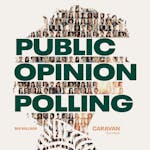New COVID-19 variants changed the travel industry’s road to recovery.
With concerns over omicron slowing and confirmed cases falling in most cities the travel industry can look forward to more consumers being open to travel in 2022. The pandemic has impacted the way consumers live all over the world and some of these changes are likely to continue to stay for the long run.
Consumer’s comfort levels with travel are impacted by mask mandates and mandatory quarantines which have left travel providers short-staffed during the pandemic. Travel showed its resilience when relief arrived in the form of vaccines and now that the omicron wave has ceased, travel brands can expect volume to grow into the warmer months. Demand for travel has surfaced quickly as consumers intend to book vacations/trips across most travel categories. In a recent Big Village CARAVAN survey, 45% of consumers are actively working on planning (17%) or thinking of planning (28%) a vacation, while 26% of all consumers have already planned a vacation.
Intent to Travel
However, the intent to travel varies across demographics. And travel related brands should be focusing on younger consumers, as younger generations are more likely to have plans to travel soon. Almost half (47%) of consumers prefer to visit places far from home with more than half of Gen Z & Millennials leading the charge. 62% of Millennials and 65% of Gen X all prefer to prioritize the beach and relaxation during vacation. Millennials and Gen Z are more likely to plan out the trip themselves.
Just over three-quarters (77%) of gen pop consumers are planning to travel anywhere within the U.S. Some regions will see more traffic than others as with the South leading the way as 57% of consumers are thinking of traveling to the warmer southern weather. Less than half (40%) of consumers are looking to travel to the West, 20% of consumers are planning to travel to the Northeast, and 18% of consumers are thinking of traveling to the Midwest. International travel will have a much slower recovery process as only one-third of consumers have indicated they would be open to international travel. In the Caribbean the top 3 places consumers would like to travel to are the Bahamas (40%), Puerto Rico (25%), and Jamaica (23%). In Europe the top 3 places to travel are France (33%), Italy (33%), and Spain (24%).
Comfort continues to vary widely by the type of travel. As has been the case throughout the pandemic, travelers are more comfortable with self-contained transport than shared, and with domestic rather than international travel. More than 53% of consumers would be open to traveling by airplane, 62% of consumers who make more than $100K are already comfortable with prospect of traveling. Overall, 51% of consumers feel comfortable traveling by motor vehicle. 59% of baby boomers, 52% of Gen X, and 48% of Millennials were open to traveling by car. When it comes to other forms of transportation consumers are less likely to travel by cruise (9%), train (7%), and bus (5%) due to crowds and concerns over catching the virus.
Many travelers opted to stay with friends and family during their holiday travels, and for plans in the coming months, 37% of Baby Boomers still prefer to stay with family and friends. However, those stays are declining in favor of paid accommodations. 59% of Millennials, 64% of Gen X, 66% of consumers who make more than $100K prefer to stay at hotels. Overall, 20% of consumers prefer to stay at Airbnb, driven by the preferences of high earners and Millennials. Safety and flexibility remain key considerations, however, stays and accommodations are primarily driven by pricing and duration of stay. Overall, 27% of consumers typically have a budget of $1,000 – $1,999 while on vacation. 23% of consumers have a budget of $2,000 – $3,999 while on vacation. Consumers making more than $100K are more likely to spend $2,000 or more while on vacation.
With the waves of COVID-19 and omicron now dying down, consumers are looking forward to traveling in 2022, which promises to be a better year for the industry than 2021.
Written by Shahib Choudhury, Director, Business Advisory, at Big Village Insights.










